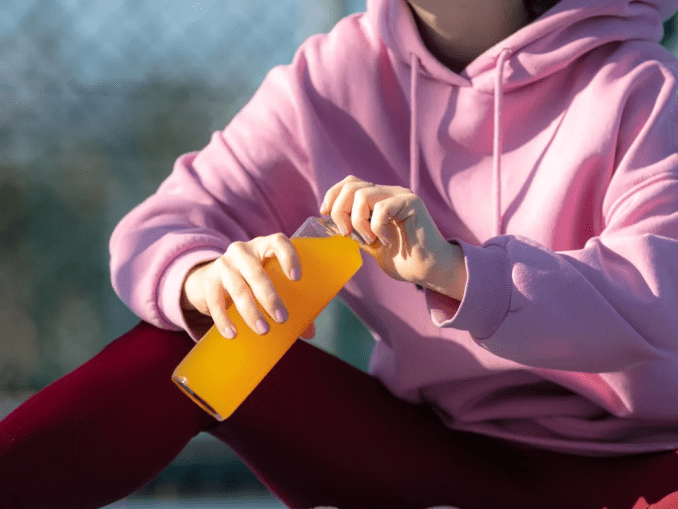Hydration is undeniably vital—our bodies thrive on water, and staying hydrated keeps everything functioning as it should. But when it comes to how we hydrate, the methods can spark debates. Your wife’s habit of taking 4-6 doses of electrolyte mix daily has undoubtedly led to some tension. Is her routine excessive, and is it even safe? Let’s dig deeper into the role of electrolytes, their benefits, and how you can navigate this hydration conundrum together.
Understanding Electrolytes: The Foundation of Hydration

Electrolytes are the unsung heroes of your body’s daily operations. These essential minerals—like sodium, potassium, calcium, and magnesium—play crucial roles in maintaining fluid balance, regulating muscle contractions, and keeping your nerves firing properly. They’re lost through sweat, urine, and even breathing, making replenishment necessary during or after periods of intense activity or illness.
While electrolytes are indispensable, balance is key. Too little can lead to fatigue, cramps, and confusion, while too much may result in adverse effects. This raises the question: does your wife’s current intake meet her needs, or could it be tipping the scales?
How Much Electrolyte Intake Do You Really Need?
For most people, a healthy, balanced diet provides all the electrolytes they need. Foods like bananas, spinach, avocados, yogurt, and nuts are rich in these vital minerals. In many cases, drinking plain water throughout the day is enough to maintain hydration.
Electrolyte needs vary depending on factors like age, gender, physical activity, and overall health. Here are some general recommendations:
- Sodium: Approximately 2,300 mg per day for adults (less if you have conditions like high blood pressure).
- Potassium: Between 2,600-3,400 mg daily, depending on gender and age.
Unless your wife is running marathons or engaging in rigorous physical activities, consuming 4-6 doses of electrolyte mix daily could exceed what her body actually requires. If her activity level doesn’t justify this high intake, her current habit might be more than what her system can handle.
The Risks of Overconsuming Electrolytes
As beneficial as electrolytes are, too much of a good thing can cause problems. Here’s how excessive electrolyte consumption can impact the body:
- Sodium Overload: High sodium levels can lead to hypertension, increasing the risk of heart disease and stroke.
- Potassium Surplus: Too much potassium may result in hyperkalemia, which can trigger irregular heartbeats, muscle weakness, and, in severe cases, cardiac arrest.
- Overall Electrolyte Imbalance: A disproportionate intake of electrolytes can disrupt the body’s natural balance, potentially causing nausea, dizziness, and cognitive issues.
If your wife isn’t sweating profusely every day or recovering from a bout of illness, it’s worth questioning whether her body needs this much supplementation.
Recognizing Signs of Electrolyte Imbalance

Electrolyte imbalances don’t always announce themselves loudly, but there are subtle symptoms to watch for:
- Persistent fatigue
- Frequent muscle cramps
- Brain fog or confusion
- Irregular heartbeat
- Fluctuations in blood pressure
- Headaches or dizziness
If your wife is experiencing any of these symptoms, it may be time to reassess her electrolyte intake.
Why Your Wife Might Be Reaching for the Electrolyte Mix
Before jumping to conclusions, it’s essential to understand why your wife has developed this habit. Some common motivations include:
- An Active Lifestyle: If she’s engaging in regular high-intensity workouts or endurance sports, she may believe the extra electrolytes are necessary for recovery.
- Marketing Influence: Many electrolyte brands emphasize benefits like increased energy, faster recovery, and better athletic performance, which can lead consumers to overuse their products.
- Preference for Flavor: Flavored electrolyte drinks can simply taste better than plain water, making them an easy choice for hydration.
Understanding her reasons can pave the way for a respectful and constructive conversation.
The Right Way to Approach the Topic

Addressing this topic requires a thoughtful approach. Criticizing her habit outright may cause defensiveness, but framing the conversation as a shared exploration of health can foster understanding.
Start by sharing what you’ve learned: “I’ve been reading about electrolyte intake, and I’m curious about your perspective. What do you think about how much you’re taking each day?”
Ask questions that encourage discussion rather than confrontation:
- “Do you notice any changes in how you feel after drinking the electrolyte mix?”
- “Have you considered whether this amount is necessary for your activity level?”
Using “I” statements, like “I’m concerned about the potential risks,” keeps the conversation personal and non-accusatory.
When to Seek Professional Advice
If you’re uncertain about her specific needs, consulting a healthcare professional or a nutritionist can provide clarity. An expert can assess her activity level, dietary habits, and overall health to determine the right amount of electrolytes for her body.
Medical guidance can also redirect the conversation from a personal disagreement to an evidence-based exploration of hydration needs, making it easier for both of you to reach a resolution.
Exploring Balanced Hydration Alternatives

If 4-6 doses of electrolyte mix daily turns out to be unnecessary, there are other ways to maintain optimal hydration without overloading on supplements:
- Stick to Plain Water: For most people, plain water is the best and easiest way to stay hydrated.
- Incorporate Hydrating Foods: Foods like watermelon, cucumbers, oranges, and celery naturally contain water and essential electrolytes.
- Try Natural Options: Coconut water or herbal teas offer a gentler way to replenish electrolytes while avoiding the artificial additives in some commercial mixes.
Encouraging these alternatives can help balance her hydration routine without cutting out electrolyte supplements entirely.
Striking a Compromise That Works for Both of You
The goal isn’t to completely eliminate her electrolyte habit—it’s about finding a balance. Perhaps she can reduce her intake to 2-3 doses per day and substitute the rest with water or natural alternatives. Framing the change as a mutual effort to prioritize health, rather than a criticism of her choices, can make her more open to compromise.
Conclusion: Hydration, Balance, and Understanding
Your wife’s commitment to staying hydrated is admirable, but overloading on electrolyte supplements may not be the healthiest approach. While electrolytes are essential for maintaining balance in the body, too much of a good thing can lead to unwanted side effects. Addressing the issue with empathy, understanding, and respect is the best way to ensure her hydration habits align with her actual needs.
By prioritizing open communication and, if necessary, seeking professional advice, you can work together to strike a balance that supports her health and your peace of mind. After all, hydration should be about feeling good—not sparking debates at the dinner table.


